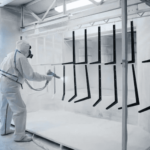
Unlocking potential is more than filling a role; it’s about investing in the future of your sales team. Integrating sales assessment tools into your hiring process is so important.
Talent assessments allow you to evaluate sales candidates through role-play exercises and case studies focusing on their sales skills. It helps you identify skill gaps and find the right candidate to match your sales needs.
Identifying Skills Gaps
One of the most essential things sales leaders need to know is where their team’s skill gaps are. It helps them determine how to support their team members to improve and overcome these issues to meet company goals.
A skill gap analysis is a standard method for identifying skills gaps. It involves examining the current competencies of employees and comparing them to the competencies needed for success in each role. Using this information, the leadership can plan training programs to address the gaps.
This process can be done on an individual or a team/department/company basis. In the case of an individual, this is often done through various methods, including written tests, quizzes, questionnaires, and even workplace simulations to assess the employee’s skills in real-time.
If a team is the focus, it may be possible to identify gaps by interviewing and holding performance reviews with each manager and department head. For example, a team leader could ask managers to rank the importance of each competency and then use this data to identify areas where training needs are most urgent. In this way, the team can quickly and efficiently develop the most needed skills. It is a much faster approach than trying to fix these gaps individually through one-on-one coaching sessions or by increasing the marketing budget to generate more leads.
Identifying the Right Person for the Job
Hiring new salespeople can be an incredibly time-consuming process, with HR departments often spending months reviewing CVs and conducting in-person interviews. Sales assessment can speed up this process by identifying the most promising candidates based on their results and giving HR teams vital information about how they might perform in the role once hired.
One key aspect that sales assessment tests look for is how well a candidate can interact with customers. It involves examining their communication skills, which can be tested through questions that ask candidates to give feedback on customer service call recordings or describe their best sales experience. It’s important to note that these tests are almost always timed, so candidates should practice answering them beforehand to understand how they will fare during an interview.
A personality suited to sales roles is crucial, and an assessment can reveal a lot about an applicant’s temperament. It’s essential to focus on personality traits desired in sales, such as a drive for success and an optimistic outlook.
An assessment can also show a candidate’s growth potential and learning capacity. It’s essential to ignore superficial flaws like job-hopping and focus on whether applicants have a solid foundation in the knowledge and skills required for the role.
Identifying the Right Person for the Team
Whether you are looking to build up your team of salespeople or are ready to take on more ambitious goals, identifying the right person for the job starts with the assessment stage. Sales assessments can expedite the hiring process by providing critical insights into potential candidates, allowing you to find the most qualified candidate for your company.
Typically, assessments focus on measuring the skills required in the sales role you are hiring for. These include objection handling, qualifying and closing, time management, goal setting, and performing research. They can also test a candidate’s ability to communicate effectively and reach decision-makers.
Hiring top salespeople can be time-consuming: interviewing multiple candidates, reading through resumes, and checking references. A sales assessment can help you save time and hire the best candidate faster so that they can start hitting their quotas quickly.
As you evaluate potential candidates, look for red flags such as their lack of industry experience, comfort with cold calling, or shyness around prospects. These are all signs that they may not be the right fit for your company and could lead to poor performance. In addition, an assessment can also reveal that the job they are applying for is different from what they want to do long-term and will cause them to be bored or even miserable in their role.
Identifying the Right Person for the Company
Sales assessments are an excellent way to identify the right person for your team. Many leaders see traditional characteristics like hard work and resilience as driving factors in high performance, but it’s not just these qualities that separate the best from the rest. Instead, the unique combination of talents makes an individual the right fit for your business.
Personality or behavioral assessments can provide valuable insights, but these tests should be used with a comprehensive assessment process. For instance, the Hogan Personality Inventory can reveal how a candidate interacts with others under normal working conditions and their strengths. It can also indicate what personality traits may lead to poor performance.
During the interview, ask questions that evaluate a potential hire’s character and work ethic. For example, you can ask candidates to talk about their past jobs and what they enjoyed most about them or how they handled difficult situations that occurred on the job. It can tell you a lot about their ability to remain committed and focused on achieving their goals, even in the face of challenges.
Another helpful tool is the SalesFuel HIRE Sales Assessment Test, which combines the best research from leading sales professionals to predict future success in a role. It also allows hiring managers to back up their gut feeling with scientifically validated data, making it more likely that they’ll find the right talent for their organization.






